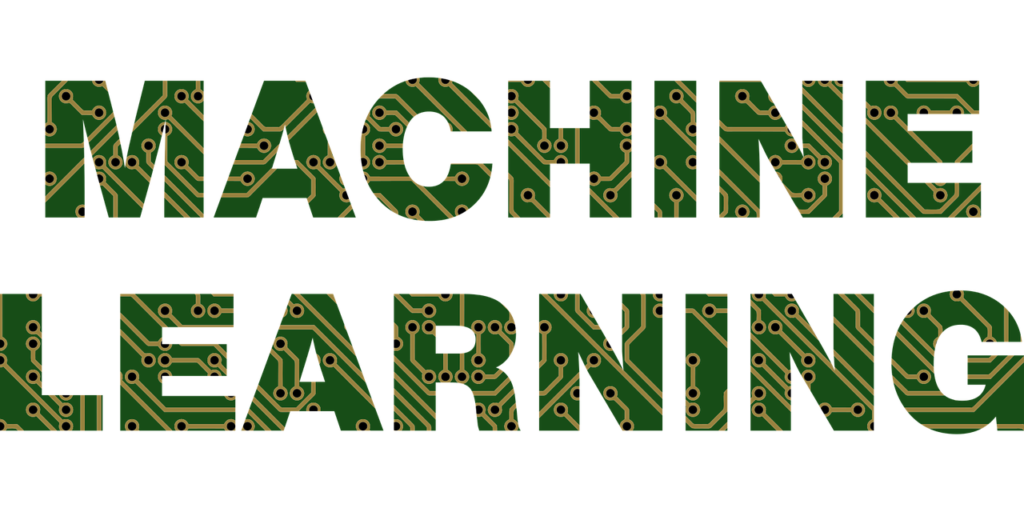What is Machine Learning?
Machine learning is a subset of Artificial Intelligence (AI) that focuses on teaching computers to learn from data and make decisions or predictions. In this article, we will know everything about Machine Learning.
It uses algorithms and statistical models to analyze data, which the machine can then use to improve its performance or make certain predictions about new data. The goal of machine learning is to create systems that can learn and automatically improve their accuracy and performance over time based on given data. This technology is used in a wide range of applications, from image recognition and natural language processing to fraud detection and recommendation engines.

Real-World Use of Machine Learning
Today machine learning is being used extensively in many industries. Some of the industries are –
Image and speech recognition: Machine learning algorithms are used to identify and classify images, and transcribe speech into text.
Natural language processing: Machine learning is utilized to analyze and grasp human language, including feeling investigation, language interpretation, and chatbots.
Fraud detection: Machine learning calculations are utilized to identify fake conduct in monetary exchanges and Credit Card utilization.
Recommendation systems: Machine learning is used to analyze user preferences and make personalized recommendations for products and services.
Healthcare: Machine learning is used for disease diagnosis, drug discovery, and predicting patient outcomes.
Autonomous vehicles: Machine learning is used to help autonomous vehicles navigate and make decisions based on real-time data.
Predictive maintenance: Machine learning is used to predict when equipment or machinery is likely to fail, allowing for proactive maintenance and reducing downtime.
Financial forecasting: Machine learning is used to analyze financial data and make predictions about stock prices, market trends, and investment strategies.
Machine Learning vs Artificial Intelligence
Machine learning and artificial intelligence (AI) are related but distinct concepts.
AI alludes to a wide arrangement of technologies and approaches that aim to make machines that can reenact human insight, including the capacity to reason, learn, see, and impart. It envelops a large number of fields, from computer vision and normal language handling to robotics and cognitive services.
Machine learning, then again, is a subset of AI that includes training PCs to gain from data without being expressly modified. It includes utilizing factual models and algorithms to distinguish designs in data, and afterward utilize those examples to arrive at forecasts or conclusions about new data.
In other words, machine learning is a specific technique used to implement AI. Machine learning is a type of AI, but AI encompasses a much wider range of technologies and techniques, including rule-based systems, expert systems, and evolutionary algorithms.
Programming Language to use for Machine Learning
Python is generally recommended as the first choice for beginners due to its ease of use and extensive libraries.
However, there are many programming languages that can be used for machine learning, but some of the most popular ones are:
Python: Python is the most widely used language for machine learning due to its simplicity, versatility, and large community of developers. It has many libraries and frameworks such as TensorFlow, Keras, PyTorch, and Scikit-learn, which make it easier to build and train machine learning models.
R: R is a programming language designed for statistical analysis and data visualization. It has a wide range of libraries for machine learning, such as Caret, MLib, and H2O.
Java: Java is a popular programming language used in enterprise applications. It has libraries such as Weka and Deeplearning4j, which are widely used for machine learning.
C++: C++ is a high-performance language that is commonly used for developing complex algorithms and large-scale applications. It has libraries such as TensorFlow and OpenCV, which make it suitable for machine learning applications.
MATLAB: MATLAB is a high-level programming language designed for scientific computing and numerical analysis. It has a variety of toolboxes and libraries for machine learning, such as Neural Network Toolbox and Statistics and Machine Learning Toolbox.
How to become expert in Machine Learning?
Becoming an expert in machine learning requires a combination of theoretical knowledge, practical experience, and continuous learning. Here are some steps that can help you on your journey to becoming a machine learning expert:
Learn the fundamentals: Start by learning the fundamental concepts and techniques of machine learning, such as regression, classification, clustering, neural networks, and deep learning. You can start with online courses, textbooks, and tutorials.
Practice with real-world data: To gain practical experience, work on real-world datasets and apply different machine learning algorithms to solve real problems. You can participate in machine learning competitions, work on open-source projects, or build your own applications.
Choose a specialization: Machine learning is a vast field, so it’s important to choose a specialization that aligns with your interests and goals. Specializations can include computer vision, natural language processing, reinforcement learning, or deep learning.
Learn a Scripting Language: You need to learn Python or R language to become an engineer in Machine Learning field.
Learn Basic Statistics: You need to be good in statistics. For this you should learn Mean, Median, Mode, Marginal Probability, Joint Probability, Continuous and Discrete Probability.
Understanding of Big Data: To become an expert in Machine Learning field you should deep dive into Bigdata eco-system.
Machine learning is a rapidly evolving field, so it’s important to keep learning and updating your skills. Read research papers, attend online courses, and experiment with new techniques and algorithms.
Keep Following SharePointCafe.Net
